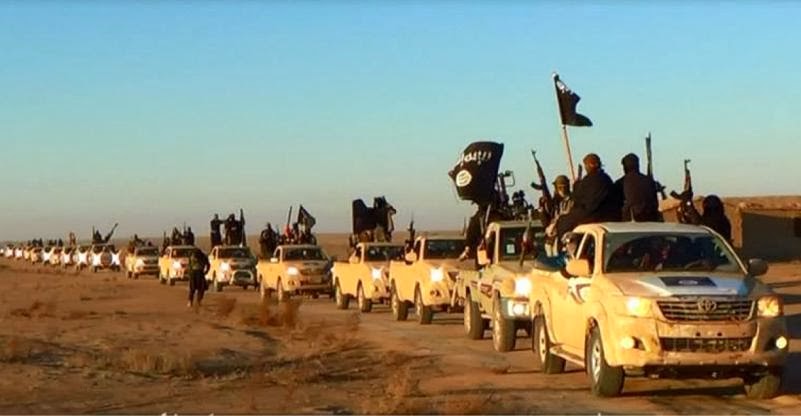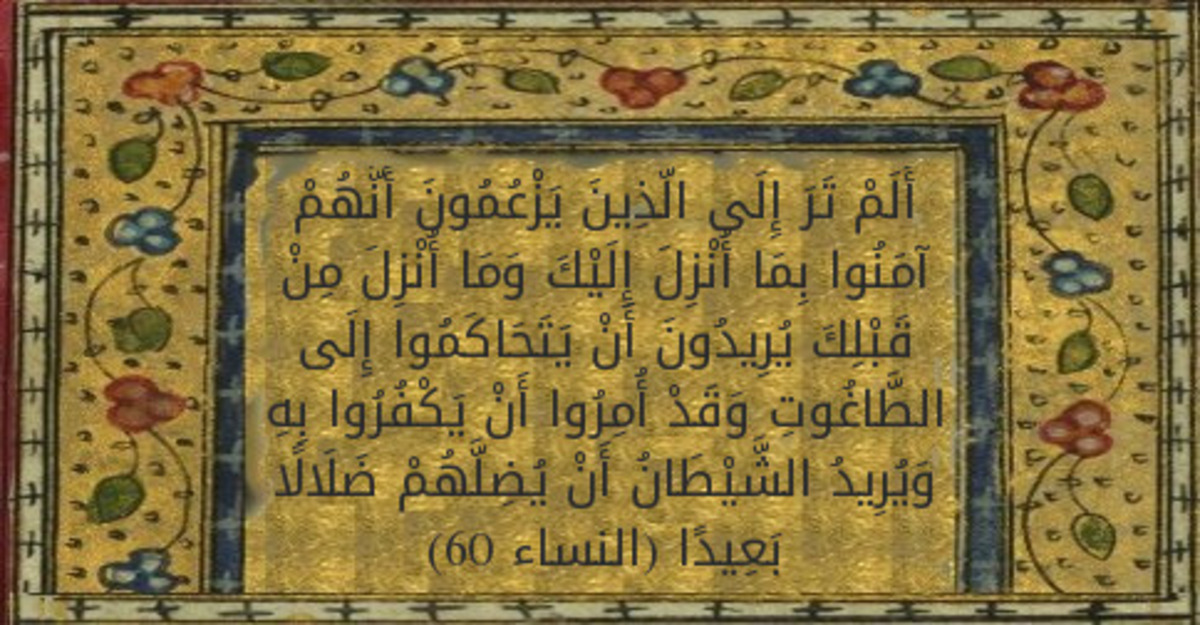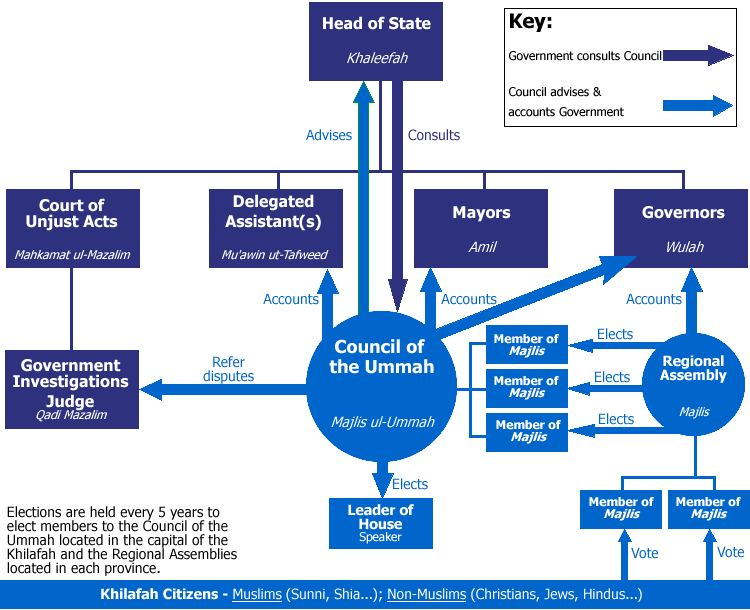The Arab Spring Reaches Iraq

The Arab Spring Reaches Iraq
by Adnan Khan
“The mainstream media has basically gone into hysteria mode with so much focus on ISIS, when in fact, ISIS is a small entity. It’s definitely playing a critical role in the uprising in the areas of Sunni Iraq, but if it didn’t have the support of the masses, in other words a general Sunni uprising, it would not be able to accomplish all of this……. and I think that the problem is there is just a disproportionate amount of focus on ISIS.” Kamran Bokhari, Strafor.
As many across the world continue to digest what is taking place in Iraq, the global media has gone into overdrive. As the world was watching the world cup in Brazil, the global media have attempted to fill their gaps in knowledge about Iraq, with assumptions logic and outright lies. There are many basic facts that have been diluted or are being reported in a manner to fulfill the agenda of others. In essence, just like the Arab spring, what is taking place in Iraq is an uprising against an oppressive ruler.
The recent events in Iraq are a direct result and consequence of US aims of dividing Iraq. This started when the US imposed no-fly zones over North-Iraq in 1991, the Kurdistan province ever since has operated as an autonomous state. The events of 9/11 gave the Bush administration the justification for invading Iraq, it spread lies such as Iraq possessing WMD’s and in 2003 invaded Iraq in order to create a permanent presence for the US. The US from the outset planned to divide the nation along Sunni, Shi’ah and Kurdish lines in order to make its invasion a success and in order to divide any opposition. The US under Paul Bremer divided power in the new political system and then drew a constitution which would permanently divide the nation. The US removed Saddam Hussain’s regime and then disbanded his Army and security forces. America planned to establish a new security force, which it would train.
Nouri al Malaki has been the prime minister of Iraq since the transitional government ended in 2006. Today, political and military power in Iraq is highly centralized in the Prime Minister Nouri al-Maliki’s personal office. Al-Maliki dominates Iraq’s army, special operations units, intelligence and the main government ministries. These have become his personal office. However the army mostly armed and trained by the US, is undisciplined and unprofessional – and very unreliable. It has depended on US military support to conduct operations. Al-Maliki has continued to accumulate power through pursuing the elimination of his rivals. In December 2011, al-Maliki banned Sunni Deputy Prime Minister Saleh al-Mutlaq from cabinet meetings and issued an arrest warrant for Vice President Tariq al-Hashimi. Al Maliki has become a tyrant, he filled his government with those loyal to him, mainly composed of Shia’s from the South of Iraq and sidelined its minorities and ultimately treated them as second-class citizens, leading a campaign of torture, killing, and severe persecution.
Maliki disbanded the Sahwa militias, breaking a promise to integrate many of them into the regular army. The Sunni’s have been completely sidelined and eliminated from government. As a result many started to protest, with support from the whole province and tribal leaders. Protest camps were set up and the people demanded employment, showed their anger at arrests under ‘terrorism,’ and argued for representation in government. Al-Maliki mocked their demands and opened fire on a protest camp in Hawija. At this point the protests turned to armed resistance.
Whilst the global media has been fixated with ISIS they are merely one faction in the uprising in Iraq. A command structure was set up in Fallujah within the first weeks of fighting. It consisted primarily of tribal leaders and former army officials under the name of the General Military Council for Iraqi Revolutionaries. This council was led by Sheikh Abdullah Janabi, who also led the Shura Council of Mujihadeen in Fallujah in 2004. He called for cooperation between the various factions in Fallujah. Another senior leader Major General Montasir Al-Anbariconfirmed: “the decision to form the Sunni fighting groups was taken by clerics and tribesmen in the wake of the Hawija Protest Massacre, which was carried out by the Iraqi army; dozens were killed and wounded in the incident.” Al-Anbari also confirmed that the formation of the fighting groups was decided in a meeting of all Sunni groups apart from ISIS. ISIS, he said, asked to join the groups several months after their formation and asked to be part of the Sunni military action. Many reservations were expressed, claimed Al-Anbari, before it was agreed to accept the ISIS request. He went further: “In any case, ISIS only forms around 30% of the rebel fighters but it is linked to us by certain agreements and recognizes that it cannot face other fighting groups.”
Al Monitor website detailed the different tribes fighting the Malaki regime and explained ISIS was just one of four groups fighting the regime. Despite this the Iraqi government treated all fighters as terrorists. Tribes have unified with other factions to form a resistance. The main Dulaim tribes — among them the al-Bou Nimr, al-Farraj, al-Bou Issa and al-Fallaha and gunmen from the al-Jamilat, al-Jabour and al-Janabat clans formed an alliance. An assortment of armed groups that had fought against US forces and later either disbanded, reduced their activity or joined the Sahwa or Iraqi security forces have joined ranks. They include Hamas-Iraq, Kataeb al-Thawrat al-Ishrin, Jamaat al-Naqshbandi, Jaish al-Mujahidin and Baathist outfits. Michael Knights, an analyst at the Washington Institute for Near East Policy who has researched the Naqshbandia group, said, “They couldn’t have seized a fraction of what they did without coordinated alliances with other Sunni groups.” Jihadi groups that follow al-Qaeda but are not part of ISIS, having split from it after its leader, Abu Bakr al-Baghdadi, rebelled against the global al-Qaeda leader Ayman al-Zawahri. The most prominent of these groups is Jaish Ansar al-Sunna. All of this shows ISIS make up a small fraction of the overall resistance.
After almost one year of fighting the Malaki regime, the opposition has grown in strength and the Malaki government has struggled to take back land due to its army not being disciplined or capable in the East and North of the country. When Mosul fell on June 5 2014 the resistance already had de facto control of Anbar province. They had already expanded and strengthened their position in neighboring Nineveh province, of which Mosul is the capital. The operation for Mosul was conducted with several militia groups, supported by the tribes in the Anbar province. The New York Times reported one senior leader of the fighters: “These groups were unified by the same goal, which is getting rid of this sectarian government, ending this corrupt army and negotiating to form the Sunni Region. The decisive battle will be in northern Baghdad. These groups will not stop in Tikrit and will keep moving toward Baghdad, planning for the offensive had begun two years ago.” This shows whilst many in the world were shocked at the rapid fall of Iraq’s second largest city, most of the surrounding areas were already under rebel control. Due to this, the Iraqi security forces did not fight when Sunni fighters took over Mosul. The soldiers dropped their weapons, shed their uniforms for civilian clothes and joined the people. As many army officers are not paid regularly and are from the Sunni areas, it would also appear public opinion was against the central government due to their atrocities and supported the takeover of the city. The NYT times even reported When 500,000 residents of Mosul fled their city, they did not do so out of fear of the ISIS but due to what the Malaki government would now do. Many have even expressed gratitude towards the fighters who kicked Maliki’s security forces out of their city.
It appears that ISIS has gone beyond what was agreed with the tribal leaders. Major General Montasir Al-Anbari explained: “Without doubt, though, we are worried about unilateral movements of ISIS because they attacked the city of Telafer and kidnapped the Turkish consul, and they are threatening to head to Baghdad, Karbala and Al-Najaf. All of this, violates the agreement reached between the Sunni rebel groups. However any political solution on the ground that meets the demands of the Sunnis and saves them from Al-Maliki’s oppression will be accepted.”
Regional and global powers moved earnestly to derail the uprising. The Malaki government immediately described the resistance as a Sunni uprising against the Shi’ah, when it is in reality an uprising against an oppressive ruler. This was a similar tactic used by Basher al-Assad to rally support for him and deflect from his own failures and oppression. Iran deployed its Islamic Revolutionary Guard Corps (IRGC) with the Iraqi army just as they did in Syria to prop up the al-Assad regime. At Jummah prayers on 14 June 2014 top Shia cleric Grand Aya¬tol¬lah Ali al-Sistani called for Shi’ah to bear arms and fight the ISIS. Saudi Arabia has long had links with the tribes in the Anbar province. There have been some reports Saudi Arabia’s acting intelligence chief, Yousef bin Ali al Idrisis, has been in direct communication with the Majlis Thuwar al Anbar.
The people of Iraq need to ensure their uprising maintains its purity. Many of the rebel groups are from various backgrounds, including former Saddam Hussain security officers, as a result maintaining their cohesion will be central.
The people also need to be careful from seeking outside help. ISIS has opened up another front in Syria, which has fractured the uprising against al-Assad. Some of their actions have raised serious questions about them, as a result the people of Iraq need to be careful of those within its ranks.
The Ummah of Iraq also needs to be wary of external help. BasNews reported June 20 that 150 Saudi intelligence officials have secretly travelled to the rebel controlled Mosul city through Syria’s al-Hasakah province. Regional nations cannot be trusted as they have been working on numerous regional issues with the Western powers.
In summary, the US divided Iraq into Sunni, Shi’ah and Kurd and now the minority is being oppressed by the majority. It is likely the west will call for the further division of Iraq and possibly even dismember it, creating even further division. The Ummah in Iraq and the region must resist this at all cost.





